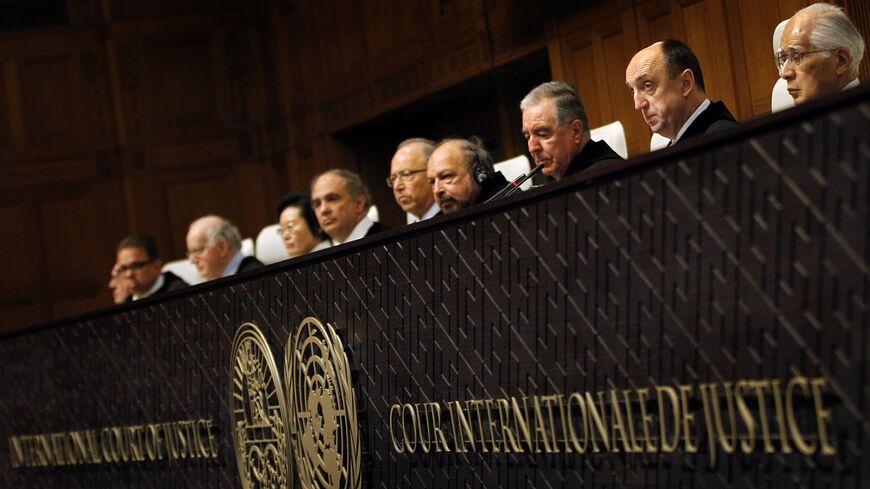ANKARA — Turkey will apply to the UN International Court of Justice to be a co-plaintiff in South Africa’s case against Israel, Turkish Foreign Minister Hakan Fidan said Wednesday.
“I would like to announce, for the first time, that Turkey has decided to join the case filed by South Africa against Israel in the International Court of Justice,” Fidan told reporters at a joint press conference with his Indonesian counterpart, Retno Marsudi, in Ankara.
“We will submit our formal application to the International Court of Justice once we finalize the legal text, putting this political decision into action,” he added.
Under Article 63 of the statute, parties have "the right to intervene in the proceedings." In April, Colombia, which announced on Wednesday it was severing its diplomatic ties with Israel, formally applied to the ICJ to intervene in the case. Nicaragua did the same in January.
The Turkish foreign minister said Turkey has been collaborating with regional and other countries “that are ready to recognize” a Palestinian statehood in an effort to convince them to join the case.
Fidan met with Qatari Prime Minister Sheikh Mohammed bin Abdulrahman Al Thani, along with his Saudi and Yemeni counterparts, Saud bin Faisal Al Saud and Shaya Mohsin Zindani, respectively, on Monday in Riyadh, on the margins of a contact group gathering set up by the Organization of Islamic Cooperation and the Arab League to discuss a cease-fire in Gaza.
The Turkish foreign minister refrained from elaborating on whether he discussed the decision with his foreign counterparts. “As Turkey, we will continue to stand by Palestine on every issue,” he said.
South Africa claims that Israel’s actions are in breach of the 1948 UN Genocide Convention. In an interim ruling in January, the court determined that "there was a risk of irreparable harm to the Palestinian right to be protected from genocide," Joan Donoghue, who just left her post as head of the International Court of Justice, said in a recent BBC interview. The court also found that South Africa had a right to bring the case before the court and that Israel must ensure the flow of more humanitarian aid into Palestinian enclave.
Fidan said that Ankara had been working on this move for months, but the decision comes at a time when the Turkish government is intensifying actions aimed at increasing pressure on Israel after the setback it faced in nationwide local elections on March 31.
Erdogan’s ruling Justice and Development Party (AKP) lost its leading position as the party with the highest nationwide vote share to the main opposition, Republican People’s Party (CHP), for the first time.
During the campaign leading up to the vote, opposition parties, including the CHP, heavily criticized the government for what they described as its failure to do more for the Palestinian people in Gaza.
Using “stop trade with Israel” as one of its slogans in the campaign, the Islamist New Welfare Party captured two provinces that were formerly AKP strongholds.
In April, the Turkish government unveiled trade restrictions on dozens of product groups in the country's trade with Israel.



